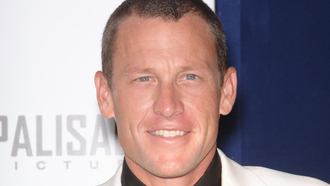Lance Armstrong: American Psychopath

In October the U.S. Anti-Doping Agency released a scathing report identifying Lance Armstrong as the ruthlessly-driven mastermind of a 10-year doping scheme. Armstrong, a cancer survivor and an inspiration to millions, was shown to be deceitful, manipulative and remorseless — many of the telltale signs of psychopathy.
What’s the Big Idea?
How could Armstrong’s dignified public persona be so at odds with the patterns of behavior described in the report? The disturbing truth is actually how consistent his public and private behavior appears to be. According to Kevin Dutton, author of The Wisdom of Psychopaths: What Saints, Spies, and Serial Killers Can Teach Us About Success, people with high psychopathic tendencies often appear outwardly normal. In fact, they are often quite charming. But psychopaths are also looking to use that charm to deceive people, as they have the tendency to be ruthless competitors who aim to win at all cost.
Dutton says this trait is very pronounced in athletes, whether they are looking to win the Tour de France or hit 450-foot home runs. “If they want something,” Dutton says, “they go for it and they go for it now,” as in the Nike slogan “Just do it!”
Watch the video here:
What’s the Significance?
Dutton says the characteristics of mental toughness, fearlessness, ruthlessness and the ability “to focus remorselessly on a goal” are straight out of sports psychology textbooks. These characteristics, if properly managed, can build world-class competitors. In fact, Dutton says we can all channel certain psychopathic tendencies and use them to our advantage (“Psychopath Up!”).
For instance, the psychopathic mindset can be helpful in getting you what you want. You want a raise? What’s the worst thing that could happen? Your boss says no. Psychopaths don’t focus on that. They focus on the upside. So if you want a raise, don’t dwell on the negative consequences of asking for one.
This kind of psychopathic mindset must be distinguished from that of the violent, psychopathic killer, who calmly stands in court as he is sentenced to death or life in prison.
“If that happened to us,” Dutton tells Big Think, “we would probably just collapse. We would go to pieces.” And yet, when that happens to psychopaths, “they stick a finger up at the judge. They grin and smile at the jury. They are just not fazed by even the most grievous insults to their existential wellbeing.”
So it’s not hard to see why people with high psychotic tendencies make reckless decisions. But what about the rest of us?
For one thing, we need to look at the environments that we inhabit. Just as a ruthless corporate culture can benefit a psychopathic boss, Lance Armstrong’s win-at-all-cost attitude made him perfectly suited to compete at the highest level in professional cycling. The correlation between doping and winning the Tour de France, after all, is hardly a secret. If this is to be a teachable moment, we will need to not only look at our own processes for making decisions but also the incentives that are put in place in a culture that often overwhelms our capacity to make smart and ethical choices.
Image courtesy of Shutterstock
Follow Daniel Honan on Twitter @Daniel Honan





